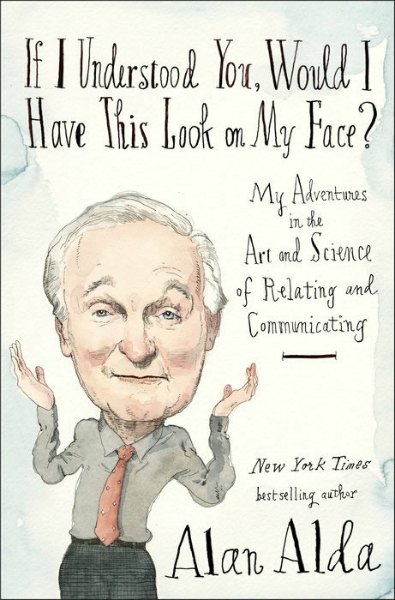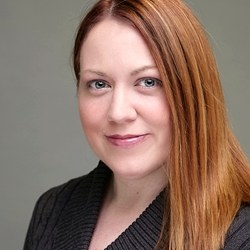As an award-winning actor and best-selling author, Alan Alda (“M*A*S*H”) understands the importance of communication. The success of a television show, film, play, or book entirely depends on the ability to relate to the audience, make them feel your pain, and mirror their own human experience.
But it’s not just actors who can benefit from better communication. As marketers, we know that getting our audiences to take action is the only way to build a business, and they won’t take action unless we can effectively communicate why they should.
Through his company, Alda Communication Training, Alda helps salespeople, executives, scientists, doctors, engineers, and others to cultivate empathy, relate better to others, and communicate complex messages in simpler ways.
In his new book, If I Understood You, Would I Have This Look on my Face? My Adventures in the Art and Science of Relating and Communicating, Alda dives deep into research and his own personal experience helping people across multiple disciplines to relate better to one another.
As host of the MarketingProfs podcast, I read a lot of books to prepare for interviews, but rarely do I re-read them once the interview is recorded. This time, I bought the audio version and listened multiple times. Alda packs so much valuable insight on communication into 200 pages, and makes it easy to digest by wrapping insights into entertaining stories from his long, varied career.
The Key to Successful Communication (and Customer Relationships)
The key to successful communication—and therefore, relationships—according to Alda, is empathy. If you’re a MarketingProfs fan, you might remember that Ann Handley's Everybody Writes also discusses the importance of “pathological empathy” in marketing writing, or a relentless focus on the needs of your audience.
Alda’s exploration of the topic uncovers insights on empathy that will prove valuable for marketers, but the book will also help marketers outside of work—at home with their children, talking with their spouse, negotiating with clients, or even getting complicated news from healthcare professionals.
“I spend a lot of time in the book talking about how useful it can be in business, in family relationships, in selling,” says Alda. “Just about everything that humans do with one another involves good communication or cries out for better communication.”
His experience, described In the book, bears this out. First, Alda explains the importance of relating to others in the context of acting, and shares lessons from years doing improvisational exercises to improve actors’ performances. He goes on to share how he successfully used these same kinds of approaches to help graduate students and scientists to give clearer, more effective presentations about their work. (Alda founded the Center for Communicating Science at Stony Brook University.)
In the book, Alda emphasizes that empathy is the cornerstone for good communication, but he goes beyond simply recommending that people cultivate empathy. He shares research on topics as varied as how the number of medical malpractice claims is impacted by a simple apology and how doctors can read a patient’s anxiety level by paying closer attention to nonverbal cues. He shares insights gleaned from coaching scientists, salespeople, actors, and engineers.
“The reason I wrote the book,” says Alda, “is because I had come to realize that the eight years of work I had spent helping teach scientists to communicate better and medical professionals—I had begun to realize that it applied to everybody.”
“When I looked back over my life at the time,” he continued, “for instance when I had to earn money when I was an out of work actor, I was selling mutual funds, or the times after that when I was selling ideas for television shows and that kind of thing, I realized that when it didn’t work it was because I wasn’t using empathy, I wasn’t reading the other person to find out if the idea was going over like a lead balloon or not. Is this what the other person really could use?”
Empathy, Mindfulness, Storytelling (Sound Familiar?)
Here are a few overarching lessons from the book:
- Effective communication requires empathy.
- Improvisational techniques (“improv”) can help you to learn empathy.
- Mindfulness helps you relate better to others: for example, try naming the emotions you think others are feeling based on their behavior or facial expressions.
- People retain stories better than data, so use stories to communicate key points.
The importance of Alda’s message is summed up in the book itself when he says:
"People are dying because we can't communicate in ways that allow us to understand one another. It sounds like an exaggeration, but I don't think it is. When patients can't relate to their doctors and don't follow their orders, when engineers can't convince a town that the dam could break, when a parent can't win the trust of a child to warn her off a lethal drug. They can all be headed for a serious ending."
The book is well worth your time, and if you can listen rather than read, I’d recommend it—Alda narrates the book himself.
More Resources on Successful Communication
Improve Your Marketing Communications With Insights From Neuromarketing (Part 1 of 2)
Personalize Your Marketing Communications in 2018
Orchestrating and Communicating Your Account-Based Marketing Campaigns





